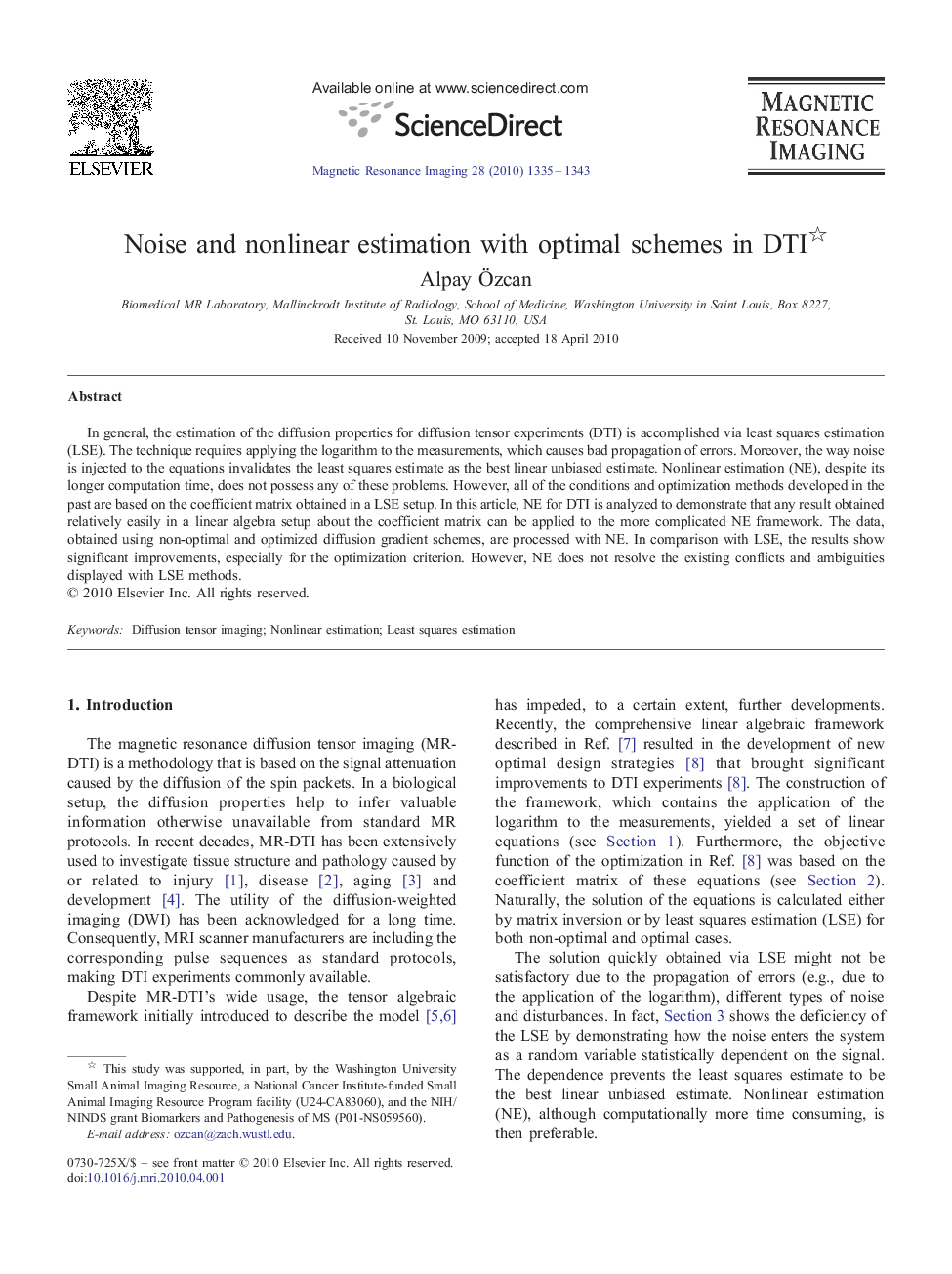| Article ID | Journal | Published Year | Pages | File Type |
|---|---|---|---|---|
| 1807001 | Magnetic Resonance Imaging | 2010 | 9 Pages |
In general, the estimation of the diffusion properties for diffusion tensor experiments (DTI) is accomplished via least squares estimation (LSE). The technique requires applying the logarithm to the measurements, which causes bad propagation of errors. Moreover, the way noise is injected to the equations invalidates the least squares estimate as the best linear unbiased estimate. Nonlinear estimation (NE), despite its longer computation time, does not possess any of these problems. However, all of the conditions and optimization methods developed in the past are based on the coefficient matrix obtained in a LSE setup. In this article, NE for DTI is analyzed to demonstrate that any result obtained relatively easily in a linear algebra setup about the coefficient matrix can be applied to the more complicated NE framework. The data, obtained using non-optimal and optimized diffusion gradient schemes, are processed with NE. In comparison with LSE, the results show significant improvements, especially for the optimization criterion. However, NE does not resolve the existing conflicts and ambiguities displayed with LSE methods.
